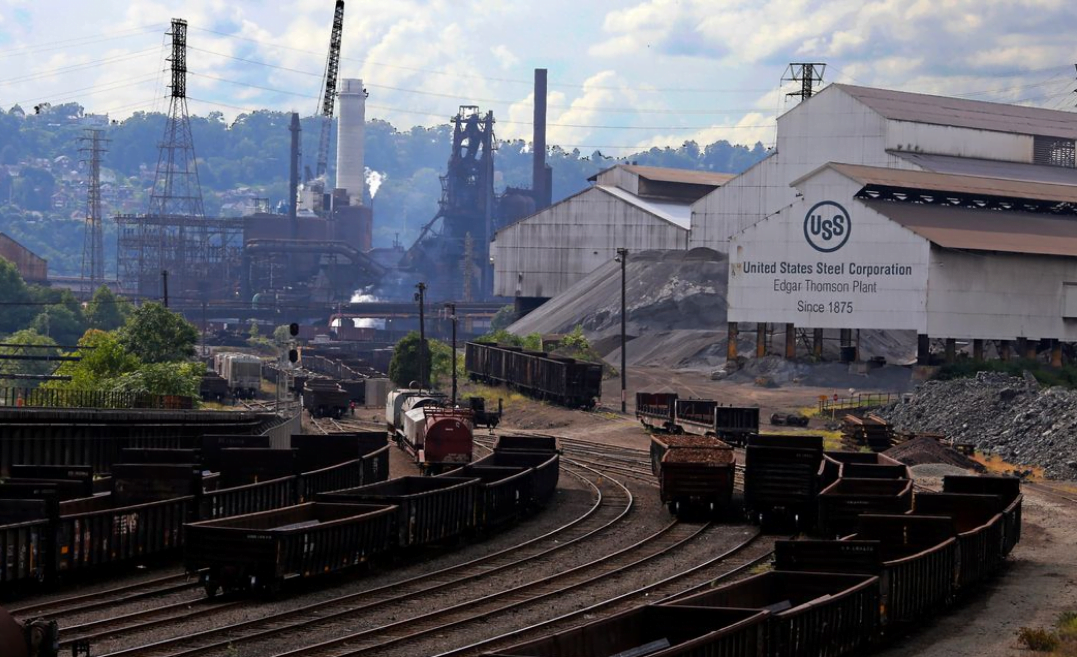In another significant development, the renowned American steel maker US Steel is on the cusp of selling for a whopping $14.1 billion to its Japanese rival Nippon Steel. This development puts President Biden Policy in a delicate situation when the latter attempts to revive domestic manufacturing while maintaining international partnerships.
Biden Policy, Complex Balancing Act:
So the Biden policy, focused on rejuvenating American industry once again shows discomfort and initiates a review of the proposed acquisition, which speaks volumes in terms of complex political challenges that President deals with.
Domestic Concerns:
Biden policy is urged to block the sale by union representing steel workers and bipartisan senators under national security reasons. Such concerns include the possibility of transferring U.S. Steel positions and production base to foreign countries due to overseas control.
Bipartisan Calls for Action:
Senators, including Republican Josh Hawley voice the necessity of steel production by domestically owned mills for US Steel manufacturing and supply chains defending jobs, national security.
US Steel Corporate Perspective:
On the other hand, US Steel executives raise objections and claim that merging with Nippon Steel would be of benefit to workers and position the entities as market leaders in global steel production .
Geopolitical Considerations:
Biden is struggling between national security issues and broader geopolitical ramifications. These collaborations with Japan, in particular the fight against Chinese manufacture, increase the complexity of decision processes.
Conflicting Views:
Former Commerce Secretary Wilbur Ross contends that this deal is not a clear danger to U.S security. He warns that unnecessary tensions should be avoided by suggesting that the political attacks could undermine American national security more than acquisition itself.
Uncertain Outcome:
The fate going forward remains unclear as Biden tries to balance conflicting pressures concerned over the effect it would have on U.S Steel workforce and the future of 123 year legacy company..
Striking the Balance:
The situation highlights the intricate balance Biden must strike between economic goals, national security considerations, and diplomatic relationships to shape the future of American industry.
Review Outcome Anticipation:
Industry experts and political personalities give their opinion on what the results of CFIUS review will be concerning the proposed deal with U.S Steel by Japan’s Nippon Steel. It is recognized that previous decisions have established a precedent, but the general feeling is that there will be little or no blocking of its sale. Alternatively, the review may result in conditions, possibly requiring commitments from Nippon Steel to assure certain U.S. employment levels and output volumes. The expectation is that the review will fall short of suggesting an end to the deal.
Expert Insights:
Ms. Kilcrease, a longtime observer of CFIUS decisions adds that it is likely the committee will take an option via conditions rather than in rejecting the sale outright. This approach is consistent with the history of previous reviews.
Political Perspective:
Senator Hawley highlights that the final decision will be President Biden’s and views it as a test of his commitment to the industry. He states that the administration has legal authority to block the sale if they decide so, further ringing questions regarding the political will to act in such manner.
The CFIUS review and President Biden’s response of the last weeks will be watched closely by the industry, lawmakers, and members of public in as they have critical implications for U.S. Steel and the greater landscape of American manufacturing going forward.
President Biden finds himself at a crossroad in the proposed Japanese takeover of U.S Steel between revitalizing domestic industry and maintaining strong international alliances. This high stakes decision reveals the delicate ballet between economic ambitions and geostrategic considerations.
As pressure is increased by unions and bipartisan senators, the way in which President chooses to deal with this situation will not only affect the future of a legendary American company but it will also serve as an indicator of his dedication to providing security for jobs that pay well and are based on manufacturing right here at home. The complex landscape heralds the difficult decisions to be made by Biden in his quest for a delicate balance as he attempts create a resilient and globally competitive American industrial sector.
